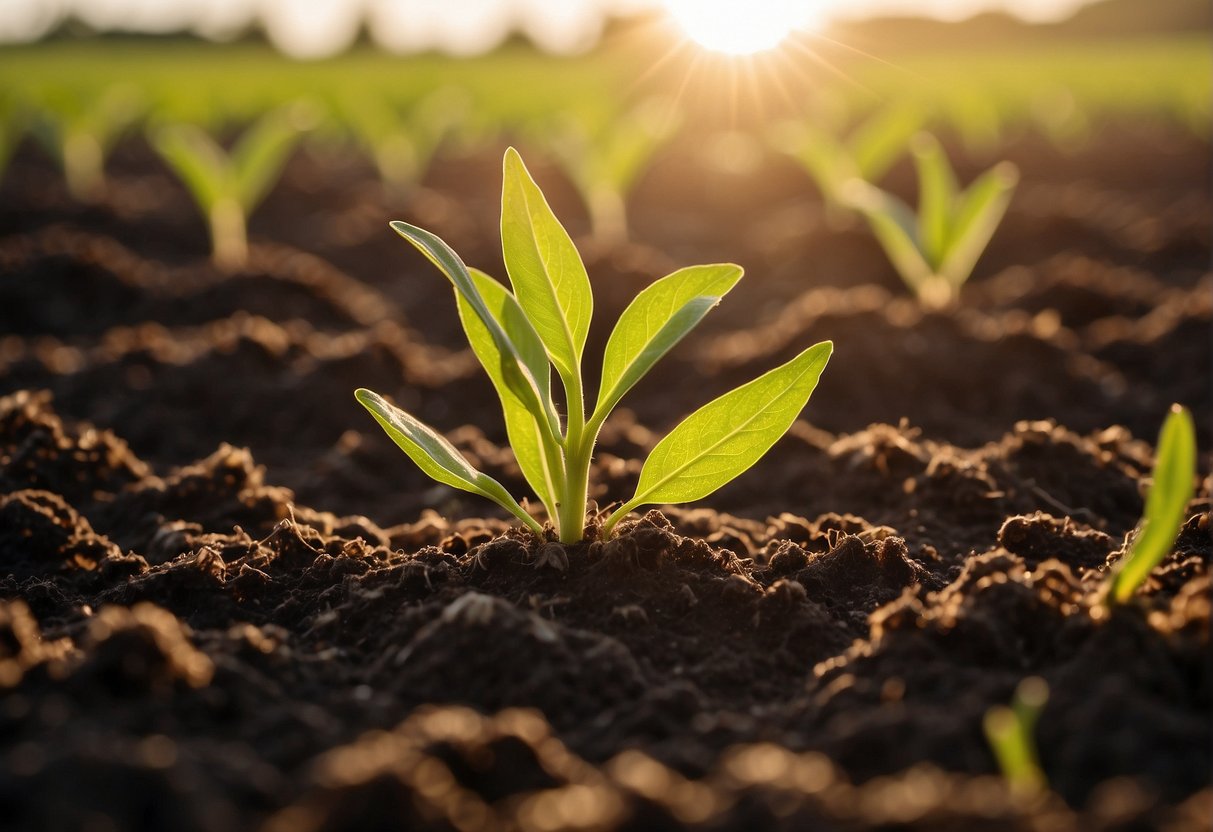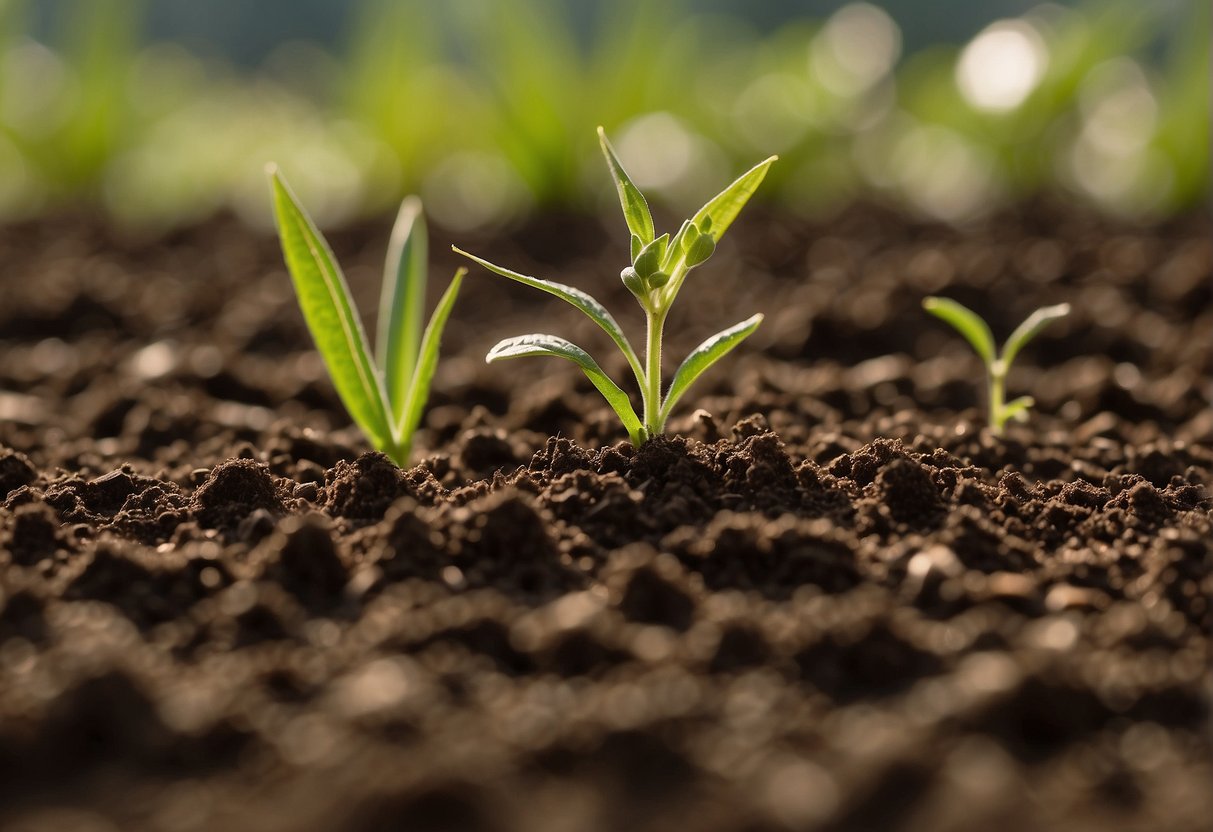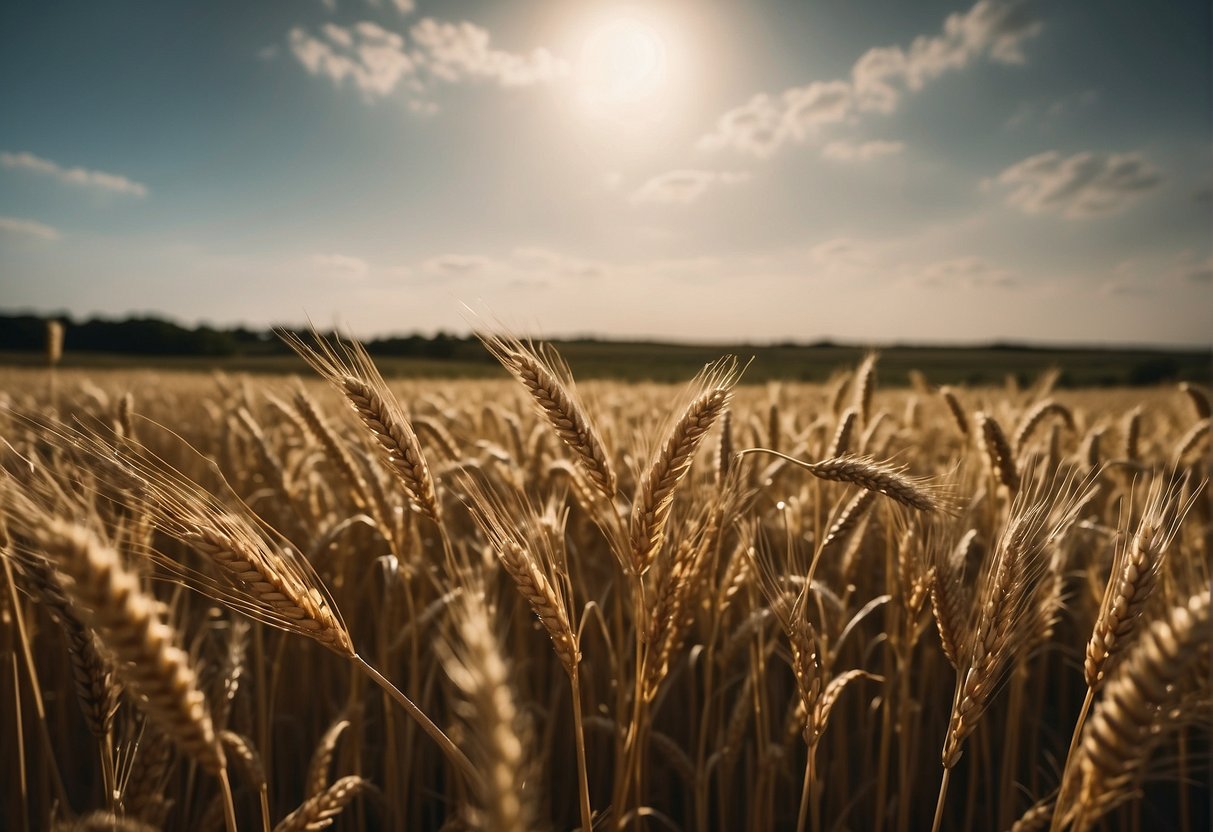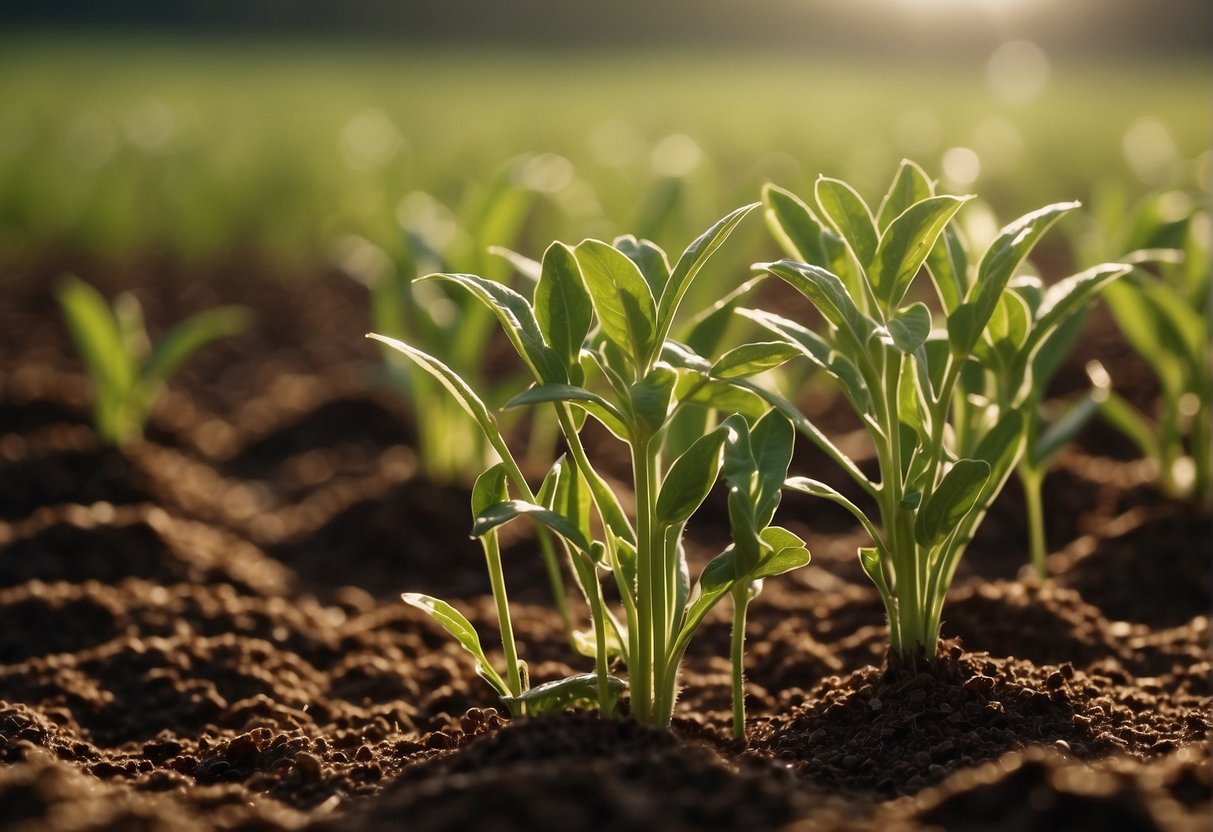Bible Verses About Seeds: Exploring Growth and Faith in Scripture
Throughout the Bible, seeds are frequently used as a symbol for a variety of concepts, ranging from spiritual growth to the Word of God itself. These small yet potent emblems are woven into the fabric of biblical teaching, illustrating that God often uses the ordinary to articulate the extraordinary. Seeds represent beginnings, potential, and the cycle of life, and they are mentioned in different contexts, from the well-known parables of Jesus to the wisdom-filled chapters of the Old Testament.

Understanding the mentions of seeds in the Bible can provide us with profound insights into the nature of faith and the kingdom of God. Jesus often spoke in parables involving seeds to describe the kingdom of Heaven and the responsiveness of people’s hearts to God’s word. Additionally, seeds are a recurring theme related to principles of sowing and reaping, which can be translated into a broader understanding of cause and effect in our spiritual and everyday lives.
Key Takeaways
- Seeds in the Bible symbolize beginnings and the potential for growth.
- Jesus’ parables use seeds to elucidate spiritual truths and kingdom principles.
- The principle of sowing and reaping is a key biblical concept reflecting on our actions and their outcomes.
Biblical Significance of Seeds

Seeds have profound symbolism in the Bible, representing concepts such as faith, the kingdom of God, and divine providence. They are often used in parables to illustrate spiritual truths and moral principles.
Seeds as a Symbol of Faith
The mustard seed is frequently cited as a metaphor for faith. In the Scriptures, it is said that if we have faith as small as a mustard seed, we can accomplish great things. The mustard seed, one of the smallest of seeds, grows into a large tree. This illustrates how the tiniest increment of faith can grow and produce significant effects in our lives and the lives of others.
Sowing and Reaping in Scripture
The principle of sowing and reaping is central to the teaching of the Scriptures. It emphasizes that our actions, much like seeds, have consequences that grow and spread beyond their initial scope. Genesis 1:29 mentions God giving us “every plant yielding seed” as sustenance, signifying the provision and trust placed in the natural order of sowing and reaping, a system set by God for our wellbeing and sustenance.
The Seed and the Sovereignty of God
Parables using seed imagery often reflect on the sovereignty and providence of God in the world. The parable of the sower, for example, discusses how the word of God is received differently depending on the state of one’s heart, much like seeds flourishing or failing in different types of soil. This story underscores God’s kingdom’s growth, which, regardless of obstacles, ultimately prevails through His divine sovereignty.
Parables and Teachings of Jesus

In our exploration of biblical teachings, we encounter the profound parables of Jesus that use seeds as metaphors to convey spiritual truths. These teachings are foundational to understanding the principles of the Kingdom of God.
The Parable of the Sower
In the Parable of the Sower, as documented in Luke 8:11-15, Jesus explains the varying conditions of the human heart through the acts of sowing seeds. He likens the word of God to seeds, and the different types of soil to the diverse states of receptiveness in individuals. The seeds sown along the path symbolize those who hear the word, yet the Devil prevents the message from taking root. Rocky ground represents individuals who receive the word with joy but lack the permanence of faith. Thorny ground describes those whose growth is stifled by life’s worries and riches. Finally, good soil refers to those who not only hear the word but also retain it, producing a mature and bountiful crop.
Mustard Seed and the Kingdom
Conversely, the Mustard Seed, mentioned in Matthew 13:31, serves as a powerful illustration of the Kingdom of God. Though the mustard seed is notably small, it grows into a large tree, providing shelter for birds. This parable teaches us about the expansive growth of the Kingdom from humble beginnings. Our understanding is that the mustard seed’s transformation mirrors the inception and flourishing of faith and how it extends its reach far and wide, regardless of its seemingly modest start.
Through these parables, Jesus imparts to us that the Kingdom of God operates on principles beyond physical size and initial appearances, emphasizing the potential for growth and impact inherent in even the smallest beginnings.
Principles of Sowing and Harvesting

In considering the principles of sowing and harvesting, we find that the Bible often utilizes the cycle of seeding and harvest as metaphors for spiritual truths. We see that these principles are not only physical laws of nature but also spiritual ones that apply to our personal growth and societal impact.
Firstly, we recognize that sowing and reaping are connected; as Galatians 6:7 tells us, “Do not be deceived, God is not mocked; for whatever a man sows, this he will also reap.” Here, we understand the simple but profound principle that our actions directly correlate with the outcomes we experience.
In 2 Corinthians 9:10, it reads, “He who supplies seed to the sower and bread for food will supply and multiply your seed for sowing and increase the harvest of your righteousness.” This verse highlights the concept of stewardship and blessing. We are not only given seeds to sow into the ground but also into the lives of others through acts of righteousness.
We gather from Genesis 8:22, “While the earth remains, seedtime and harvest, cold and heat, summer and winter, day and night, shall not cease,” that there is an order to the world—a reliability in the cycle of seasons that reflects God’s constancy.
Below are the core principles we can derive:
- Sow and Reap: Our actions have direct consequences.
- Multiplication of Seed: Provision and increase come to those who sow.
- Cycle of Nature: Reflects the faithfulness of divine order.
- Spiritual Harvest: Sowing in righteousness yields a moral, spiritual harvest.
We learn that diligent sowing and patient waiting lead to a rewarding harvest, both in the natural world and in our spiritual lives.
Agricultural Metaphors and Spiritual Growth

Agricultural imagery offers us powerful insights into spiritual development, with seeds and soil providing a vivid picture of faith’s growth and maturation.
Growth and Maturation in Faith
In the realm of spirituality, growth and maturation parallel the agricultural process where seeds sprout and develop into mature plants. Much like a farmer tends to their crops, we must nurture our faith through consistent practice and reflection. The biblical verse James 3:18 speaks to this, illustrating that righteousness is sown in peace by those who make peace.
Just as plants require time and the right conditions to grow, our spiritual growth unfolds over time, influenced by our actions and attitudes. This process involves an increase in understanding and a deepening of our relationship with the spirit.
Cultivating Good Soil for the Word
The condition of the soil in which the seeds of faith are planted is crucial. 1 Peter 1:23 reminds us of the enduring nature of the Word of God, likened to a seed that thrives in the good earth of receptive hearts. It’s our responsibility to cultivate this soil, ensuring our hearts are open and prepared to absorb spiritual teachings.
We learn that fruitful growth—yielding patience, love, and kindness—is contingent upon the soil‘s quality, much like certain soils produce abundant fruit while others do not. This metaphor encourages us to examine and ready our own hearts, creating an environment conducive to spiritual prosperity.
Application and Reflection

In exploring the significance of seeds within biblical texts, we find that seeds symbolize potential and the importance of faith in our spiritual growth. We apply this wisdom in our lives by nurturing the seeds of faith within us and persevering through life’s trials.
- Apply: Like a seed, our faith starts small and requires nurturing. Just as seeds need soil, water, and light to grow, our spiritual understanding flourishes with study, prayer, and fellowship.
- Reflect: We reflect on the parables, considering our hearts as the soil in which these seeds of faith are sown. Are we like the good soil, receptive and fertile for growth?
In Ecclesiastes 11:6, we are reminded to:
“Sow your seed in the morning, and at evening let your hands not be idle, for you do not know which will succeed, whether this or that, or whether both will do equally well.”
This verse encourages us to actively pursue opportunities and to persevere, recognizing that our efforts may bear fruit in unexpected ways.
- Wisdom: Biblical wisdom is timeless and practically applied to our lives. We discern the seasons of sowing and reaping, acknowledging that patience is integral to the process.
- Heart: Our heart’s posture, being open and receptive, determines the extent of our spiritual harvest.
Psalm 126:5 states that:
“Those who sow with tears will reap with songs of joy.”
The principle here suggests our endurance through sorrows leads to joyous rewards. We hold firm in our endeavors, knowing that the seeds we sow in tears can ultimately lead to a harvest of joy. Through application and reflection, we recognize the transformative power of faith and wisdom in our collective journey.
